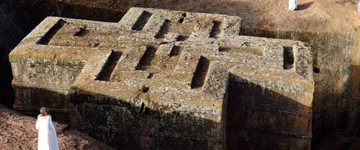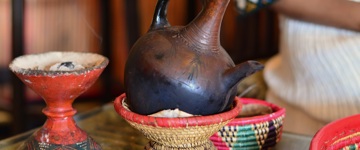Practical information
Currency
The local currency is known as Ethiopian Birr. Foreign currency may only be changed at authorized banks and hotels. Tourists can also exchange back Ethiopian Birr to foreign currency in the airport before departure. There are also plenty of ATMs all over the country so if you are down to your last few hundreds of dollars, Euros or Pounds, you can always use your ATM card.
Check the today’s exchange:
Required clothing
Due to vast altitude differences between highland and lowland areas, if you are planning to explore Ethiopia fully you should prepare for a wide range of temperature differences. Bring clothes that can be easily layered. You will need lightweight clothing for the lowlands and medium and heavy weight for the hill country.
The Ethiopian Calendar
Although much of the world uses the Gregorian calendar, Ethiopia has its own calendar, known as the Coptic or Ge'ez Calendar. It is based upon the ancient Coptic Calendar which has its roots in ancient Egypt. It has 13 months of which 12 months has 30 days each and the final month has 5 or 6 days following Julian system of adding a leap day every four years .The Ethiopian Calendar is 7 1⁄2 years behind the Gregorian Calendar. So what does it mean? It means actually the 2008!
Ethiopian holidays and events by month
12 September - Ethiopian New Year
23 September- Eid Al Adha (movable)
28 September -The finding of True Cross /Meskel/ festival -
28 December - Kullibi
7 January - Christmas
20 January - Baptisim/Timket festival
2 March- Victory of Adwa
April- Patriots Day
29 April - Good Friday
1 May - Easter
5 July - Eid Al Fitir (movable)
Amharic Alphabet
Ethiopia does not only have its own calendar but also have its own alphabet. The Amharic Alphabet consists of 249 letters, with each letter representing every sound. The Amharic alphabet also consists of numeric system.
Ethiopian Time
Ethiopia is located in GMT+3 time zone . Ethiopians use 12 hour clock with one cycle 1 to 12 from dawn to dusk, and the other cycle from dusk to dawn. The start of the day is at dawn ( At sunrise its 12 o’clock and after one hour of sunshine its 1 o’clock) and it end at dusk (At sunset is 12 and after one hour of sun set is 1 o’clock ) and same goes for the rest of the day and night.
So if you have rendezvous in Ethiopia, double check the time!
Examples:
| European time | Ethiopian Time |
| 7:00 AM | 1:00 morning time |
| 8:30 AM | 2:30 morning time |
| 9:45 AM | 3:45 morning time |
| 10:10 AM | 4:10 morning time |
| 11:00 AM | 5:00 morning time |
| 12:00 mid-day | 6:00 mid-day |
| 1:00 PM | 7:00 afternoon |
| 2:00 PM | 8:00 afternoon |
| 3:00 PM | 9:00 afternoon |
| 4:00 PM | 10:00 afternoon |
| 5:00 PM | 11:00 afternoon |
| 6:00 PM evening | 12:00 evening |






